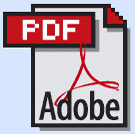“Beyond Search: A Preliminary Skill Set for Online Literacy” by Monica Bulger.
(version 1.1; updated 9/13/06)
About the Author: Monica Bulger is a doctoral student at the Gevirtz Graduate School of Education, former UCSB Writing Program Lecturer, and current Co-Director of the Bren Graduate Writing Center. Her research interests include educational technologies, cognitive writing processes, and student engagement. She currently works with the Technology in Education research initiative, an interdisciplinary team that studies the impacts of technology on student learning. More information about the author.
Related Categories: Literacy Studies
 PDF version of the research report.
PDF version of the research report.
Today’s online reading experience is a convergence of search engines, blogs, wikis, forums, social networks, RSS feeds, and traditional web pages (Lieu & Kinzer, 2000). Efforts such as Google Books, Yahoo’s Online Content Alliance, and digital libraries are increasing the rate at which resources such as journal articles, books, periodicals, and informational websites are published online (Carlson & Young, 2004; Gorman & Wilkin, 2005; Hafner, 2005). Correspondingly, an increasing percentage of the U.S. population (73% in 2006) is turning to online resources for work-related research, education. and general information about hobbies, health and shopping (Madden, 2006). Online users now have access to vast amounts of information but may not know how to use it (Azevedo & Cromley, 2004; Rouet, 2006). The risk of information overload, combined with the seductive distractions of online media, challenge users to develop savvy navigation and filtering skills. Faced with over eight billion pages of information (Lyman & Varian, 2003; Markoff, 2005) and unlimited opportunities for interaction, how do online users select what they need and know when to stop?
(more…)

 RoSE is a research-oriented social environment for tracking and integrating relations between authors and documents in a combined “social-document graph.” It allows users to learn about an author or idea from the evolving relationships between people-and-documents, people-and-people, and documents-and-documents.
RoSE is a research-oriented social environment for tracking and integrating relations between authors and documents in a combined “social-document graph.” It allows users to learn about an author or idea from the evolving relationships between people-and-documents, people-and-people, and documents-and-documents.
